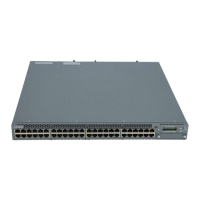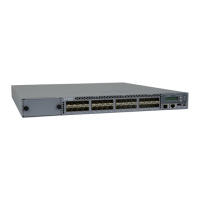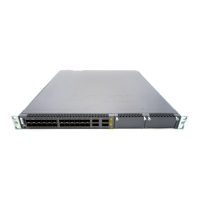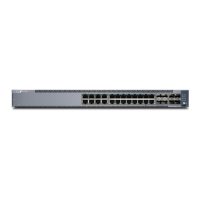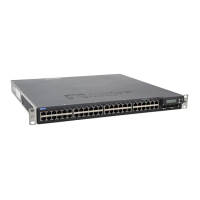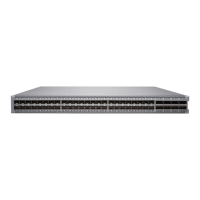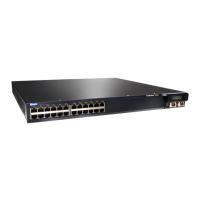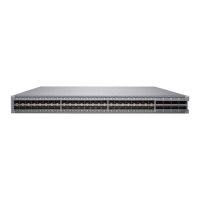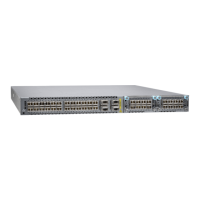• Rack connecon to the building structure.
Table 56 on page 133 provides the rack requirements and specicaons.
Table 56: Rack Requirements and Specicaons
Rack Requirement Guidelines
Rack type A U is the standard rack unit dened by the Electronic Components Industry Associaon
(hp://www.ecianow.org).
You can mount the device on a rack that provides bracket holes or hole paerns spaced at
1U (1.75 in. or 4.45 cm) increments and meets the size and strength requirements to
support the weight.
Mounng bracket
hole spacing
The holes in the mounng brackets are spaced at 1U (1.75 in. or 4.45 cm) so that the
device can be mounted in any rack that provides holes spaced at that distance.
Rack size and
strength
Ensure that the:
• Rack complies with the size and strength standards of a 19-in. rack as dened by the
Electronic Components Industry Associaon (hp://www.ecianow.org).
• Rack rails are spaced widely enough to accommodate the external dimensions of the
device chassis. Ensure also that the outer edges of the front mounng brackets extend
the width of the chassis to 19 in. (48.2 cm).
• Rack is strong enough to support the weight of the device.
• Spacing of rails and adjacent racks provides for proper clearance around the device and
rack.
Rack connecon to
building structure
Secure the rack as follows:
• Secure the rack to the building structure.
• If your geographical area is earthquake-prone, secure the rack to the oor.
• Secure the rack to the ceiling brackets as well as wall or oor brackets for maximum
stability.
133
